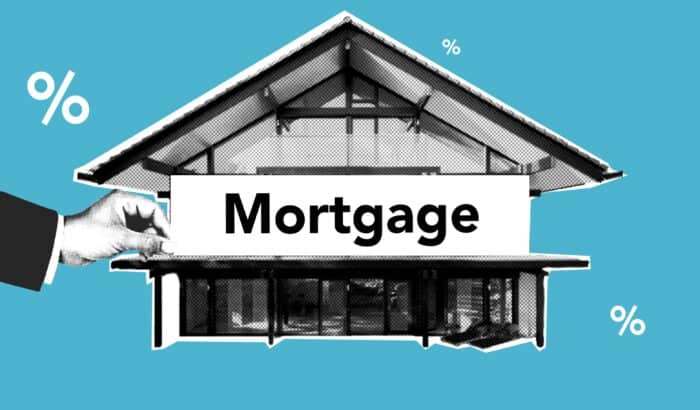
How to finance a preconstruction property purchase in Canada
July 31, 2023Financing a preconstruction property purchase in Canada can seem daunting, especially for first-time buyers. However, it can be a smooth process with the right information and planning. This blog post will discuss the steps involved in financing a preconstruction property purchase in Canada.
Understand the preconstruction process:
Before exploring financing options, it is crucial to grasp the preconstruction process. Buyers acquire architectural plans rather than a physical structures when purchasing preconstruction properties. Typically, buyers make an initial deposit and gain possession after construction. Therefore, it is vital to extensively investigate the developer, their reputation, the construction schedule, and any potential hazards associated with the project.
Determine your affordability:
To finance your preconstruction property purchase, the first step is to assess your financial situation. This involves analyzing your income, savings, and expenses. It is advisable to seek the guidance of a mortgage professional who can provide insight into your affordability and eligibility criteria. Consulting with a mortgage professional will assist you in determining the maximum price range for your preconstruction property.
Save for the Initial Deposit:
To acquire a preconstruction property in Canada, making a substantial deposit in advance, usually, 10% to 20% of the total cost, is necessary. It is essential to begin saving well in advance to fulfill this condition. One option is establishing a specific savings account that allows you to monitor your progress and make monthly contributions towards the deposit goal.
Seek Mortgage Pre-Approval
Securing mortgage pre-approval is a crucial step in the financing process as it gives you a clear understanding of how much you can borrow and enables you to search for homes within your budget. To get pre-approved for a mortgage based on your financial situation and creditworthiness, contact lenders or work with a mortgage broker.
Explore Construction Financing Options
Throughout the construction phase of your preconstructed property purchase, you will be responsible for making periodic payments, known as “draws,” to the developer. These draws are typically scheduled at certain milestones during the construction process. Fortunately, there are different financing options you can explore to handle these draw payments:
Self-Financing:
You can self-finance the draw payments if you have substantial savings or can access funds through other sources. This means you will cover the draw payments directly without additional financing. However, it is important to carefully manage your budget and plan to ensure enough funds are available for each draw payment.
Bridge Financing:
Bridge financing is a temporary loan that assists in closing the financial gap between draw payments and eventual mortgage financing. This type of loan enables you to access funds during construction until you secure a mortgage for the finished property. However, it is important to note that bridge financing typically entails higher interest rates and fees.
Construction Financing:
Some lenders provide construction finance designed especially for real estate transactions before the building begins. When the project is finished, the loans are turned into mortgages and used to pay for the construction phase. Construction financing could offer cheaper interest rates and more lenient payback conditions than bridge financing.
Research Mortgage Options for Completion
After the construction of the property is finished, you will need to obtain a mortgage to complete the purchase. It is important to research different mortgage options available in Canada, such as fixed-rate mortgages, variable-rate mortgages, or adjustable-rate mortgages. Each option has advantages and disadvantages, so it is important to consider your financial goals and risk tolerance when deciding. To explore the best mortgage options for your situation, you can consult with mortgage lenders or a mortgage broker who can provide guidance and advice.
Plan for Closing Costs
When purchasing a preconstruction property in Canada, it is crucial to consider the purchase price, mortgage, and other expenses, known as closing costs. These additional costs include land transfer taxes, legal fees, home inspections, and property insurance. Budgeting for these expenses is important to avoid any unexpected financial surprises. Planning and accounting for all closing costs will ensure a smoother and more financially secure property purchase.
Consult with Professionals
When preparing to purchase a preconstruction property in Canada, it is important to consider the potential risks and challenges that may arise during the process. One important consideration is the possibility of changes in market conditions, which can affect property value. It is advisable to conduct thorough research on the local real estate market and consult with experts such as real estate agents and financial advisors to make informed decisions. Additionally, it is important to carefully review all contracts and agreements related to the purchase to ensure that you understand the terms and conditions and have proper legal protection.
Conclusion
Successfully financing a preconstruction property purchase in Canada requires careful and diligent planning. It is crucial to clearly understand the purchase process, obtain mortgage pre-approval, explore financing options for the construction phase, research mortgage options for completion, plan for closing costs, and seek professional advice. By following these guidelines, you can confidently navigate the financing process and secure your dream home in Canada. The Realty Bulls Is the one who can help you out with this process smoothly with their Professional Experience.







